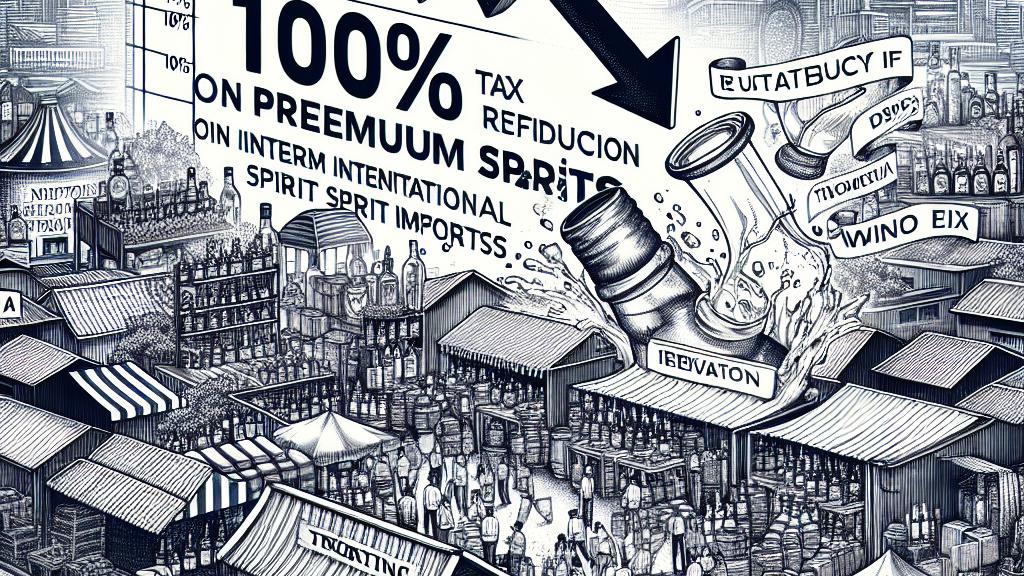Hong Kong's Spirits Tax Cuts: A Step Towards Liquor Hub Status
Overview
- Hong Kong slashes the spirits tax from an astounding 100% to a significantly lower 10% for premium liquors.
- This strategic adjustment is synced with the upcoming International Wine and Spirits Fair, aiming to attract major business.
- However, industry experts call for deeper cuts to genuinely stimulate economic growth and enhance competitiveness.

Groundbreaking Tax Reform Announced
On October 16, 2024, Hong Kong's Chief Executive John Lee unveiled a groundbreaking tax reduction in his annual policy address, aiming to revitalize the spirits industry. This bold move dramatically decreases the import duty on premium spirits, which previously stood at a staggering 100%, to a mere 10% for bottles priced above HK$200 (approximately $26). This timing is particularly strategic, aligning perfectly with the International Wine and Spirits Fair, set to draw attention and business to Hong Kong. Beyond merely adjusting tax rates, this initiative is designed to boost Hong Kong's reputation as a competitive liquor hub, potentially invigorating sectors linked to hospitality, logistics, and tourism, thus broadening the economic base.
Industry Response: A Blend of Hope and Skepticism
While the announcement generated excitement, many industry insiders, such as Danny Wong from The Bottle Shop, expressed concerns about the adequacy of the cuts. Wong pointed out that the 100% duty still applies to the first HK$200 of spirits sold, which means that common liquors, representing around 70% of the market, won’t benefit at all. For example, a bottle priced at HK$500 would still incur significant duty on the lower price point. Comparatively, liquor taxes in places like Europe and Mainland China, which range from 15% to 25%, portray a pressing need for Hong Kong to enhance its competitiveness in the spirits market. Thus, although the tax reduction is a step forward, it fails to address the broader spectrum of consumer needs and market realities.
A Vision for Economic Resurgence
The government envisions that these reforms will mirror the success experienced after the removal of wine duties back in 2008, which transformed Hong Kong into a bustling wine trading destination. By making premium spirits more accessible, authorities hope not only to cater to local connoisseurs but also to entice international visitors eager for fine dining and experiences in the city. However, this optimism is tempered by caution; experts from the European Chamber of Commerce underline the necessity of expanding tax relief to everyday spirits to unlock the full potential of the local market. Consequently, for Hong Kong to fully rejuvenate its economy, a thorough reevaluation of its tax policies is essential—ensuring that they encompass a diverse range of spirits and foster broader business opportunities throughout the city.

Loading...